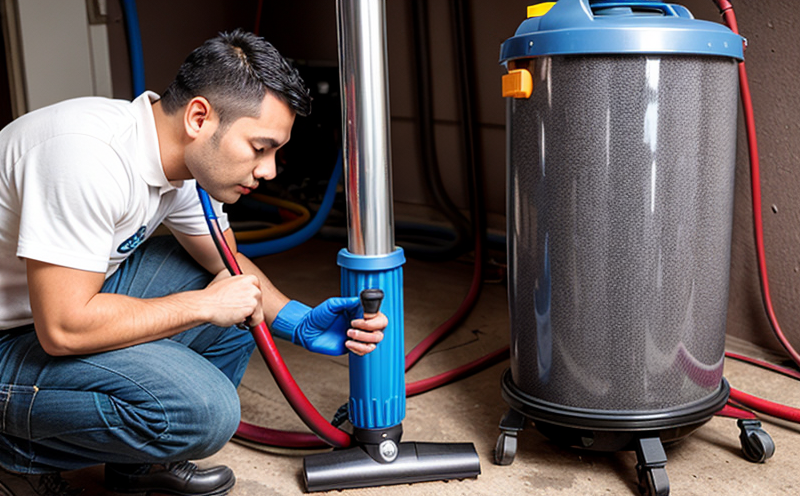Vacuum system inspection
The integrity and performance of a vacuum system are critical to many industries, including semiconductor manufacturing, pharmaceuticals, aerospace, and medical devices. A vacuum system operates under conditions where minimal air pressure is essential for the successful operation of processes such as etching, deposition, and chemical vapor deposition (CVD). Any breach in this vacuum environment can lead to significant operational failures, product contamination, or even safety hazards.
The inspection process involves a series of tests designed to identify leaks, ensure proper sealing, and verify that all components are functioning within specified tolerances. This is where the expertise of our laboratory comes into play. We employ state-of-the-art equipment and methodologies to provide comprehensive vacuum system inspections tailored to meet the highest industry standards.
Our team of certified technicians uses advanced tools like helium mass spectrometers (Helium Leak Detectors) for precise leak detection, high-resolution cameras for visual inspection, and sophisticated software for data analysis. This ensures that every aspect of your vacuum system is meticulously examined, from the bellows to the gauges.
One of the key challenges in vacuum system inspection is ensuring uniformity across different components. Our team applies international standards such as ISO 9001:2015 and ASME Section VIII Division 1 for pressure vessels, which provide a robust framework for our inspections. This ensures that all tests are conducted with precision and repeatability.
Another critical aspect of vacuum system inspection is the use of appropriate test media. Inert gases like helium or nitrogen are often used to identify leaks under controlled conditions. These gases do not react chemically with the materials being tested, making them ideal for ensuring reliable results.
The process begins with a thorough visual inspection of all components, followed by pressure testing and leak detection using specialized equipment. Once identified, any issues found during the inspection are documented in detail, along with recommendations for corrective actions. This ensures that not only are immediate problems addressed but also potential future risks mitigated.
Our laboratory maintains strict adherence to industry best practices and regulatory requirements, ensuring that all inspections are conducted efficiently while maintaining high-quality standards. We offer a comprehensive suite of services designed specifically for vacuum system inspection, making us the trusted partner for ensuring optimal performance in your facility.
Why It Matters
The integrity and reliability of a vacuum system directly impact the quality and consistency of processes that depend on it. For instance, in semiconductor manufacturing, even small leaks can lead to defects in silicon wafers, resulting in significant financial losses and reputational damage.
- Quality Control: Ensures that products meet stringent quality standards, thereby enhancing customer satisfaction.
- Process Efficiency: Optimizes production processes by minimizing downtime due to equipment failure or malfunctions.
- Safety Compliance: Adherence to safety regulations and industry best practices ensures a safe working environment for all personnel involved in the operation of vacuum systems.
In summary, regular vacuum system inspections are not just about maintaining compliance; they are essential for ensuring product quality, operational efficiency, and workplace safety. Investing in these inspections can lead to substantial long-term benefits that outweigh any short-term costs associated with them.
Benefits
- Enhanced Product Quality: By identifying and rectifying issues early on, the risk of product defects is significantly reduced.
- Increased Operational Efficiency: Minimizes downtime by preventing failures before they occur, leading to smoother production schedules.
- Better Safety Standards: Ensures compliance with relevant safety regulations and industry best practices, protecting both employees and equipment.
- Cost Savings: While initial costs may seem high, the long-term savings from avoiding costly repairs or replacements far outweigh these expenses.
- Improved Reputation: Demonstrating a commitment to quality through regular inspections enhances your company's reputation among clients and stakeholders.
- Extended Equipment Lifespan: Proper maintenance helps extend the useful life of vacuum systems, reducing the need for frequent replacements.
These benefits underscore why investing in thorough vacuum system inspections is a smart decision for any organization reliant on such technology. It not only ensures immediate operational effectiveness but also contributes to sustainable growth and success.





